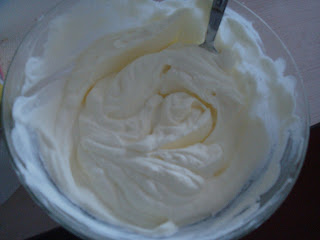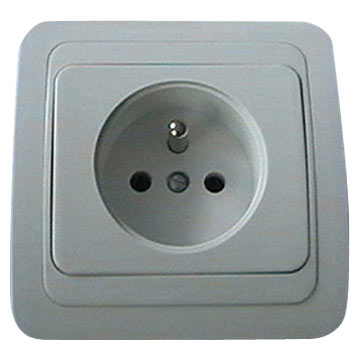The title of this post is of course in reference to the movie Dr. Strangelove or: How I Learned to Stop Worrying and Love the Bomb, which is also from where I stole the quote. Well, guess what? I'm about to let you in here. To see everything. Even the big board. ...No, I'm not worried you'll learn about my intelligence and my master plans (like the Americans in the film were worried of the Russians). But quite the opposite: you are going to be revealed my ignorance and perturbation via an incident involving cooking for a Thanksgiving dinner.
As you know, I am currently in France, far from the land of Those Who Celebrate Thanksgiving. Fortunately, I was not condemned to passing a lonely, non-celebratory holiday in a foreign country because there are other people here doing the same program as me - some of whom are also American and also who wanted to have our own celebration over here. De plus, the other foreign assistants were curious about Thanksgiving and wanted to celebrate it with us, too. Excellent! We now have a plan. Everyone is going to make a dish or two and bring it all to someone's house where we will gather, feast and celebrate.
So obviously the question now is: what do I want to bring? My options are limited because my apartment's only cooking appliance is one small burner. (One small burner that doesn't even work past Med-High, else it flips the breaker.) No microwave, no oven, etc. I'm also limited because my cooking skills extend about as far as putting frozen chicken breasts in the oven and congratulating myself and my extraordinary culinary abilities for having basted them first! I expect the Food Network to approach me about filming a pilot for a show any day now.
My first thought is to make a family favorite dessert that's very simple and requires no actual cooking. It's basically a cookie and Cool Whip layered dessert. Dip chocolate cookies in milk (so they'll soften), and put in a layer in the bottom of a dish. Layer of Cool Whip on top. More cookies, more Cool Whip, etc. Then let set in the fridge over night. Simple. I'll do that. But I fear many people will opt for a dessert as well and we will be short on actual 'meal' food. Someone is baking a chicken, so I decide to do a side. A relatively simple pasta salad (that also requires minimal cooking): boil noodles, mix with shredded cheese and Italian dressing, refrigerate. Done.
What could possibly go wrong? If you are asking yourself that question, then you obviously underestimate my ability to take any simple task and make it as complicated and convoluted as possible.
| Seriously, what could go wrong... |
First of all, I of course procrastinated until the last minute - the day before the gathering. (I didn't even take my own advice!) Despite both dishes being able to sit in the fridge for a few day with no problem, I decided to not attempt to make them until the night before - because what could possibly go wrong? (I know, I underestimated my simple-tasks-made-complex abilities as well.)
So I take a trip to the grocery store (walking, of course). List: penne noodles, shredded cheese, Italian dressing (liquid, not creamy), chocolate chip cookies, and Cool Whip. The first two ingredients I find with no trouble, but then I get to the salad dressing. And evidently France does not support Italian dressing like we in the United States do. So I stand there staring for a few minutes before deciding on a lemon / olive oil dressing instead; I figured it was relatively close to Italian, and it'd probably be an OK substitute. The cookies are found easily also, but the Cool Whip presents a problem. I cannot find that anywhere. However, they do have a great assortment of creams in general. And I happen to have recently been reminded / told that you can manually whip cream into whipped cream (Cool Whip). So I find something that appears to be whipping cream - it has a picture of a spoon with a dollop of the cream on it and some strawberries, much like the Cool Whip containers I'm used to. Alright, so this is what I'll use to make the whipped cream!
When I arrive home, I decide to make a test batch of my pasta. So I boil some noodles, then mix them with the cheese and lemon dressing. And it tastes ... nowhere near as good as the Italian version does. And I am quite put off. Now what I am supposed to make? *Sigh* I'll come back to that problem. Let's go ahead and get this cream whipped.
First thing's first: look up on the internet how to whip your own cream. And after clicking through many different articles and YouTube videos, what I learn is: to whip your cream, you...whip it. Granted, you need to add a little sugar to it, but besides that, it's simple whipping. The most important thing I learned is that if you do it by hand (as opposed to a mixer), it will take forever. So I figure I might as well start forever right now.
I pull out my tub of cream and...this doesn't look right. This is much thicker than what I've seen in the videos. It's the consistency of whipped cream already instead of a liquid. So I return to the omnipotent internet and discover that what I bought - crème épaisse - is essentially thick (heavy) cream. (I should've paid closer attention to the label.) It's basically a less bitter sour cream that's thicker than Cool Whip. And it will not serve my purpose.
So now I'm two for two on failed dishes! It's time to revamp this plan and head back to the grocery store. Fix #1 - actually buy the right kind of cream to whip for the dessert. Fix #2 - I decide to make a baked ziti in lieu of my pasta salad. It seems like a good plan because I already have the noodles and shredded cheese, so I just need to purchase the beef to brown and the pasta sauce. (Also, I figure I can cook each element separately on my one burner - the noodles and then the beef - and mix it all together while it's still warm. And fortunately there is to be an oven at the house where we're meeting, so I can sprinkle some cheese on the top and leave in the oven for a bit to get it re-warmed and have a nice, freshly melted cheese topping.) Excellent, we are now on a new mission! Back to the grocery store (walking again). I decide to go to a different store because it's a little bit closer, and perhaps I didn't see the cream I wanted at the first one because they didn't have it? Who knows.
Go to grocery store. Trip is a success. Gather all necessary items. Now home to cook. Finally.
First will be the dessert because the longer it sits in the fridge, the better. Which obviously means whipping the cream first. I pour the cream into a bowl - a chilled bowl, mind you, because everywhere I read says that helps. And I take my fork and I start whipping by hand. Ten minutes go by. This is kind of tiring. ...Twenty minutes. Whipping hands have been switched back and forth. ...Thirty minutes. Sugar added to taste; it's kind of getting whipped up. ...Forty minutes. Arms...tired...want...to quit...but almost...there... Forty-five minutes. Victory! Finally! Now keep in mind this was only 40 centiliters! (An amount just larger than your typical soda can at 33cl.) You know how people will run on a treadmill, but watch TV to pass the time? That's me, but instead of running, I'm whipping cream. And I'm able to watch an entire hour-long drama online (45 minutes without commercials). Just whipping cream.
I trek to the store to buy the cookies. And now back to my favorite activity: I have more cream to whip. But I only need about half as much as before - enough to buff up the second layer and then put the third/final layer on top. So I decide to only use about half of the next bottle of cream. That's all the amount I need, and hopefully the ratio of liquid-to-timetowhip is linear, and it will take half the time with half the liquid. ...Haha, I could be so lucky. No, no. Rest assured that it still took 45 minutes to whip! It's like déjà vu of the least exciting thing that has ever happened.
 |
| Midway through my dessert |
Day 2. The dessert is setting up nicely in the fridge. Awesome. Now for the ziti. And the fun thing, remember, is that I only have one burner. With one small pot and a frying pan. So to make this full size (9x13) pan of baked ziti, I must do it in stages. And here is how I proceed:
Boil one pot of noodles; drain; put in pan. Brown half of ground beef; put in pan. Put one bottle of sauce and half a bag of cheese in pan. Mix together. Half the pan is now full. Repeat: noodles, beef, sauce, cheese in pan. Mix everything together. I now have a very full pan of baked ziti. That took 30+ minutes to put together. (Again, at home, it should've taken 10 minutes with everything running concurrently.)
Finally all the prep work is done. I can relax, get ready, and go. I arrive at the party. I put the ziti in the oven (with some freshly sprinkled cheese on top) for 10 minutes to get it fully warm (since it was still partially warm from being freshly made).
 |
| Part of the spread |
...and then came dessert. Yes, ladies and gentleman, there were desserts aplenty, too: my whipped cream and cookie dessert, crêpes (Nutella, confiture, sugar), no-bake Nutella cookies, apple pie, tiramisu, and shortbread. Every single thing was homemade. Yes: homemade crêpes (great), homemade [from-scratch] apple pie (greater), homemade tiramisu (greaterer), etc. And we Americans shared with the others the glorious tradition of finding room for dessert even when stuffed.
All in all, we had a great time. It was good food shared with great company. Actually, great food shared with greater company. So here's to every one of you who made it a great Thanksgiving, even this far away from home and family. *Raises glass* Cheers. In the end, all my time and effort was worth it.
Except that there was so much food that no one dish was completely finished...and half of my ziti remained...along with three-quarters of my dessert...
...Next year I'm just bringing plates and napkins.












.jpg)








